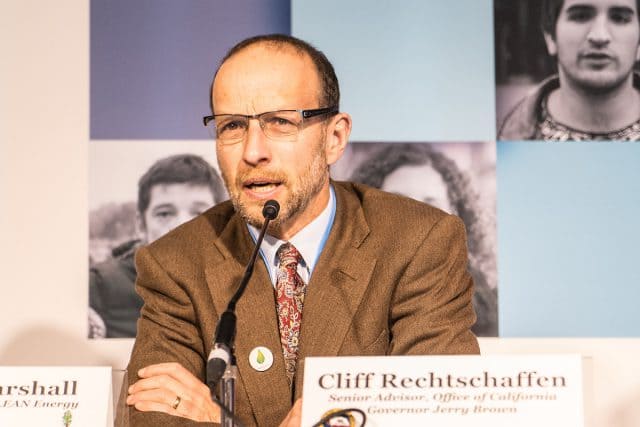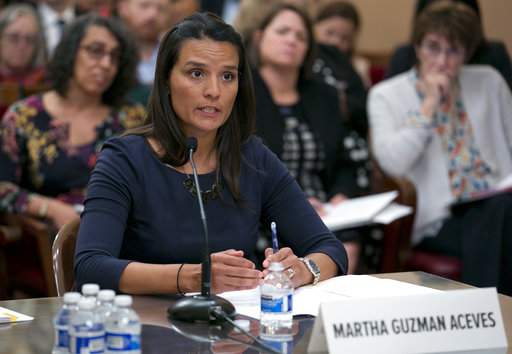 The Public Utilities Commission of California, almost routinely under an ethical cloud, may have to wait a little while before getting its two latest nominees seated at the table.
The Public Utilities Commission of California, almost routinely under an ethical cloud, may have to wait a little while before getting its two latest nominees seated at the table.
At a confirmation hearing last week, California Senate leader Kevin de León announced he was withholding his support for Gov. Jerry Brown’s nominees to the PUC — Cliff Rechtschaffen and Martha Guzman Aceves, because of open questions about their fitness and independence from the industries they are expected to regulate.
Consumer groups in California have howled in protest over the appointment of two of the governor’s senior advisers to an agency that has its own revolving door between regulators and the enormous utility and telecom companies being regulated.
Mr. de León told members attending the hearing, “the PUC is very cozy with the utilities it regulates.” That is something Stop the Cap! declared last year when the PUC essentially rubber-stamped Charter’s acquisition of Time Warner Cable with almost no deal conditions of merit to protect California ratepayers. In a 2015 special report, Stop the Cap! exhaustively detailed the PUC’s sordid and often corrupt closeness with the energy companies it regulates. The particular closeness the Commission has with electric, oil, and gas producers was topic number one at the hearing, where members were reminded about the PUC’s ethics cloud over a disastrous 2010 gas line explosion in a San Bruno residential area, and the state auditor’s report that accused the PUC of “the appearance of improper influence in its public decision making.”
The PUC also appeared to approve a sweetheart deal in 2014 surrounding the closure of the San Onofre nuclear power plant in Southern California, saddling 70 percent of the closure costs on ratepayers. Only later was it revealed the deal was made in a private hotel room in Warsaw between a top Southern California Edison executive and the disgraced former president of the PUC Michael Peevey, who had to resign after demands were made to reopen the case.
Critics contend Brown’s appointments to the PUC have amounted to little more than his personal “yes men,” who vote at the behest of a governor trying not to alienate the powerful energy and telecommunications companies that donate handsomely to his campaign.
Brown counters that Aceves and Rechtschaffen have a proven record of “sound judgement and a commitment to protecting ratepayers.”
Rechtschaffen in particular has come under severe criticism for his apparent protection of big oil and gas companies.
“Aliso Canyon was the biggest methane well blowout in U.S. history, and we still don’t know why it happened,” complained Carmen Balber, executive director of Consumer Watchdog. “Governor Brown has nominated Cliff Rechtschaffen, his top oil and gas aide with a long history of aiding industry at the public’s expense, to one of the PUC’s five seats. Rechtschaffen is responsible for ignoring rules that could have prevented the blowout at Aliso Canyon that sickened thousands of Californians. If Rechtschaffen is confirmed, the oil and gas industry will have placed an invaluable ally with a proven track record in a critical post.”
The group is particularly upset the PUC regulators reopened the facility without the necessary environmental and safety reviews, so there is no way to be certain the same accident won’t happen again. It also pointed to Rechtschaffen’s past actions, including firing tough oil well regulators and weakening well safety standards at the behest of Occidental Petroleum, followed by many safety scandals, including contaminated groundwater and the Aliso Canyon methane leak.
Under examination by Rules Committee members, Aceves and Rechtschaffen insisted their appointments signal a new era of transparency and accountability for the agency. Rechtschaffen said he wants to “change the culture of the PUC.”
Critics contend that isn’t good news for consumers but may be very good news for California’s largest energy and telecommunications companies who may have yet more allies at a regulator charged with protecting the interests of California consumers and ratepayers.


 Subscribe
Subscribe

